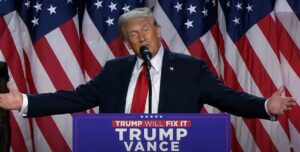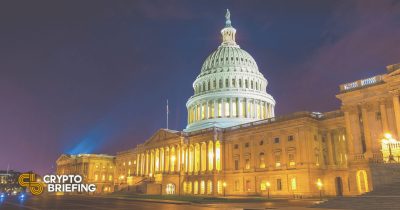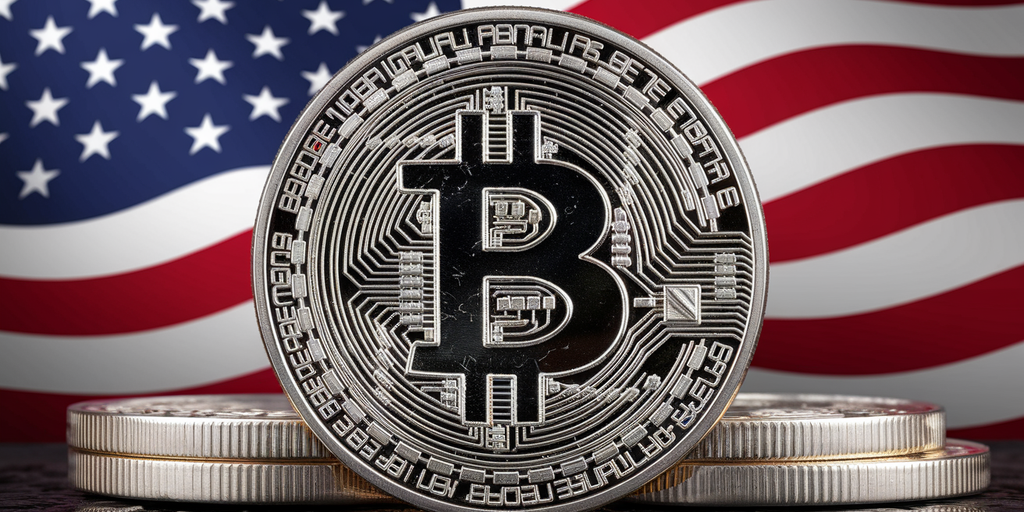Trump’s return to office means that his previously outlined policies are now more likely to be realized, which could have significant effects on the crypto landscape in the U.S. Trump’s support for crypto came into full view at the Bitcoin Conference in Nashville on September 15, 2024. There, he reaffirmed his commitment to the industry, proclaiming, “I love crypto people,” and announcing plans for a Bitcoin Strategic Reserve to bring stability to the market. Additionally, Trump’s pledge to pardon Ross Ulbricht, the founder of the Silk Road, signals his alignment with the broader movement for digital freedom and decentralization.
Beyond speeches, Trump has engaged directly with the crypto community. In a memorable moment, he handed out burgers at PubKey in New York City (the city’s famed Bitcoin bar), capturing the attention of media and supporters. He has also launched World Liberty Financial, a decentralized finance (DeFi) project that he claims embodies crypto’s core ideals.
Trump’s Strengthened Influence in the Crypto SpaceTrump’s reelection amplifies his influence in the crypto industry, and his promises resonate with advocates who view him as a crucial ally. His campaign’s funding had surged, in part due to the enthusiasm from crypto backers who saw a pathway to regulatory reform and broader industry support.
Trump’s reelection drives Bitcoin to a new all-time high of $75,057. Source: Brave New Coin Bitcoin Liquid Index
Trump’s Win Paves Path for Crypto Boom?On Tuesday night, as projections solidified Trump’s victory, Bitcoin surged past $75,000, setting a new all-time high as investors bet that the former president’s pro-crypto stance will drive policies that could transform digital assets into a mainstream part of the U.S. economy.
Trump’s shift toward crypto is a recent phenomenon, but it has attracted significant backing from the industry, from corporate contributions to high-profile endorsements. As he celebrated his apparent victory in Mar-a-Lago, Trump was surrounded by a cadre of crypto heavyweights, including Elon Musk, Robert F. Kennedy Jr., and Cantor Fitzgerald’s Howard Lutnick, signaling what could be an era of collaboration between crypto advocates and the executive branch.
Bitcoin National Stockpile and SEC Shake-Up
Central to Trump’s platform is his promise to establish a national “crypto stockpile,” signaling a shift in federal policy toward holding digital assets rather than auctioning them. Traditionally, seized crypto assets, held by the U.S. Marshals Service, are sold off regularly, a practice that has often jolted markets. Trump’s promise to retain these assets could provide stability and lift prices, building confidence among both institutional investors and retail buyers.
The former president also pledged to upend the regulatory environment, beginning with SEC Chair Gary Gensler, whose crackdown on crypto firms has stifled innovation, according to industry insiders. Although the president lacks the power to directly fire the SEC chair, Trump’s proposed replacements and influence over regulatory appointments are expected to pivot the agency toward a more crypto-friendly stance.
“On day one, I will fire Gary Gensler,” Trump said at the Bitcoin 2024 conference in Nashville this past July. “We’re going to have people in place who love crypto, not fight it.” These words have already rallied firms like Coinbase and Ripple, both of which have faced significant SEC litigation. A friendlier regulatory landscape could boost crypto’s appeal, empowering startups and established players to operate without fear of abrupt enforcement.
Mining Bitcoin ‘Made in the USA’
At a closed-door meeting with leading crypto miners this summer, Trump emphasized the importance of “American-made” Bitcoin. “If crypto is going to define the future, I want it to be mined, minted, and made in the USA,” he declared, adding that his administration would support energy-intensive mining operations to boost American energy independence and drive demand for local infrastructure.
This approach marks a stark contrast to current concerns over Bitcoin’s environmental footprint. Industry insiders, however, say the “energy dominance” vision could invigorate American mining, especially as other countries, including China, have cracked down on crypto mining.
Potential Fed Rate Cuts and Market Implications
Further fueling the market’s optimism, Trump has also signaled an intention to press for Federal Reserve rate cuts, potentially bolstering crypto prices. Though the Federal Reserve operates independently, a more dovish administration stance could influence Fed decisions, leading to a low-interest environment that benefits high-risk, high-reward assets like cryptocurrencies.
Historically, lower rates have incentivized borrowing and investments in speculative assets, particularly Bitcoin and Ethereum. “This type of macro environment,” explains crypto analyst Russ Mould, “could create ideal conditions for a crypto bull run, just as we saw in 2021.”
Crypto Firms Take Center Stage
As Trump looks toward cementing his legacy in crypto, he has promised the industry an advisory council of prominent players to shape the new regulatory landscape. For companies like MicroStrategy, Coinbase, and a slew of mining firms, Trump’s support has effectively placed crypto at the forefront of U.S. economic policy. Venture capital giants, including Andreessen Horowitz, are watching closely, with insiders hinting at a flood of funding ready to pour into the sector.
But there are also risks on the horizon. Skeptics question the sustainability of Trump’s pro-crypto approach and the viability of his “World Liberty Financial” DeFi project. The former president’s attempt to launch a stablecoin platform in September faced lackluster sales, underscoring challenges the industry may face as it tries to expand beyond niche markets.
A New Crypto Frontier?
If Trump makes good on his promises, his second term could redefine crypto’s place in the financial landscape, positioning the U.S. as a “Bitcoin superpower.” Still, this alliance has its critics. Industry leaders have voiced concern over the politicization of crypto and the instability of relying on a polarizing figure like Trump. John Kelly, his former Chief of Staff, has publicly described Trump as a threat to constitutional norms, raising questions about the potential risks of this partnership. This brings uncertainty, even as crypto supporters applaud Trump’s policies.
With Trump’s influence on the rise, other notable crypto voices have taken a step forward – most notably Elon Musk, a major figure in the space, who appeared onstage with Trump during his rallies and has publically declared his desire to join Trump’s cabinet as its Secretary of the Department Of Government Efficiency (D.O.G.E).
Trump’s alignment with the crypto industry has also dampened Democratic engagement. Kamala Harris and other Democratic leaders made recent attempts to connect with crypto communities, but the summer months solidified a predominantly Trump-focused agenda. Industry players, meanwhile, have returned to U.S. soil, establishing mining operations in red states like Texas as Democratic opposition to Bitcoin mining, citing environmental concerns, has led to restrictions in several blue states.
Crypto’s Growing Partisan Divide and Emerging RisksAs crypto’s alliance with the Republican Party strengthens, there are growing concerns about the industry’s political stability. Crypto campaign groups have increasingly thrown their support behind Republican candidates, sidelining Democrats. For example, organizations like Stand With Crypto have favored Republican lawmakers over figures like Senator Elizabeth Warren, who has been critical of crypto’s regulatory challenges.
This partisan stance within the industry could have divisive implications. Ryan Selkis, formerly of Messari, has made controversial statements regarding liberal-leaning figures, raising doubts about crypto’s inclusivity. Critics fear that such rhetoric may alienate a broader user base, hindering efforts to diversify the community.
This alliance raises important questions about the direction of crypto. Embracing Trump’s platform means supporting a suite of policies that may contrast with the ideals of independence and innovation that originally defined the space. Some worry that this could steer the industry into uncharted and potentially turbulent waters.
Industry Leaders Voice Concerns About the FutureWhile the reelection of Trump has brought relief from the regulatory pressures of the past four years of the Biden administration, it also presents a new set of challenges. Leaders in the crypto community express cautious optimism, tempered by concerns over Trump’s unpredictable nature. They worry that his support could waver or shift, posing risks to the industry’s progress.
The partnership between Trump and the crypto industry underscores a complex balancing act. While Trump’s reelection brings immediate benefits in terms of funding and regulatory support, the long-term impact remains a question. As the industry moves forward, it must weigh the advantages of political backing against the need to uphold its core principles and broader appeal.














